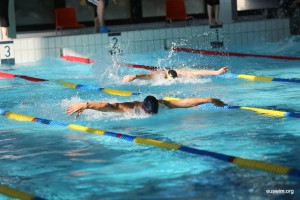
As the weather cools and the leaves change colors, kids and parents all over the country are back in the full swing of school and practice routines. Youth athletics can be a very time consuming, stressful, and expensive endeavor. Parents are an essential component in the success of a child-athlete, but they can also be a toxic element. The fine line that parents walk between involvement and respectful distance can be difficult to navigate. Done well, parents of athletes can help their children have fun, bolster esteem, and have valuable learning opportunities which will serve them well in life. Done poorly, parents of athletes can inadvertently end up damaging their relationship with the child, cause low self-esteem, and deter the child from developing a lifelong enjoyment of physical activity or sports.
Contrary to some beliefs, being an overbearing sport parent is unlikely to lead to a successful and motivated athlete. A very small percentage of children participating in sports will receive college scholarships, go to the Olympics, or play a sport professionally. Ask most parents and they will say that their priority is to raise a well-adjusted, resilient, healthy, and happy child. Here are 7 of the best approaches to being a sport parent that will help accomplish this goal while at the same time encourage your child to achieve as an athlete.
1. Be a good role model
Many studies have found that children internalize their parents’ approaches and attitudes. If you badmouth your child’s coaches, teammates, opponents, and officials, this will undermine his or her ability to have positive experiences in the sport. And it is those positive experiences that will lead to intrinsic motivation, which helps athletes of all ages and skill persist even when the going gets tough. This persistence often translates to a willingness to put in the training required for long-term success. Being a good role model for your child will help him or her gain those positive experiences that are so necessary for developing serious commitment to the sport.
Written by Jennifer Lager,Psy.D.
Read the full Article at Swimspire

